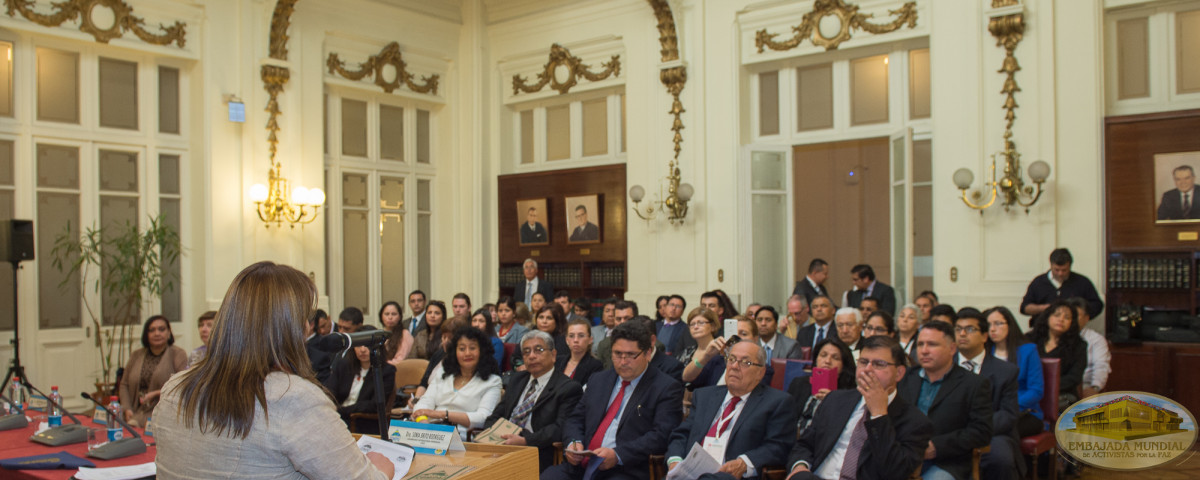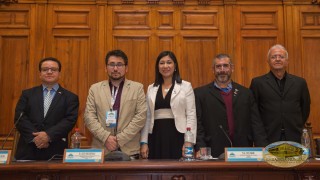The synthesis approach to Higher Education in Values, based on transformational leadership
The third workshop table of the Educational Session of CUMIPAZ 2015, yielded important results. The conclusions demonstrated that current academic life of youths is immersed in their role in society; that it why it is so important for Universities to strive to form, not only good professionals, but, good people, according to Dr. Sonia Brito, from the Silva Henriquez Catholic University of Chile, moderator of this event.
Results from the workshop table in which educators from Venezuela, Guatemala and Chile presented their contributions
Facing the challenge of corruption in American countries (highlighting particular cases from Guatemala), and before the demand of health and education rights, youths return to being political and social actors which urge authorities to clarify and place the demands of the citizens at the forefront of their government programs.
This is especially seen in universities, where youths assume their commitment as key players in social construction and change. This scenario challenges university institutions to revise their training programs, not only for the students, but for the professors as well; and in this way, progress exist within the universities.

The challenges that these universities have begins within the idea of forming their scholars in transformational leaders. So that the triad: investigation – instruction – scope, can be understood with an emphasis on social projects and contextual learning. These were the remarks given by Dr. Liza Noriega from the Rafael Landivar University of Guatemala.
The Silva Henriquez Catholic University of Chile assumes the challenge of inclusion as a mechanism for promotion and equality, where it encourages and contributes towards the comprehensive, reflexive and supportive training of students. This is why it is necessary, according to professor Margarita Posada Lecompte, to assign subjects that support the philosophy and identity elements of the university, in student training programs, such as:
- Solidary commitment to life
- A transforming social responsibility, and
- Critical reflectiveness.
The work of curricular reform, which was presented by Antonia Torres, Vice Rector of the Bicentennial University of Aragua (UBA) in Venezuela, is an opportunity to instill values and interests that invigorate university life. The following points where common ground when discussing that the UBA emphasizes on professional and human skills, highlighting the following elements:
- Cultural identity and expression
- Multidimensional human development.
This interdisciplinary process calls upon everyone in the educational field.

Finally, Dr. Jaime Constela, Dean of the Education Faculty of the Santisima Concepcion Catholic University of Chile, stated that the formation of scholars is very relevant during this transformational process.
Education in values, as it is very explicit and constituted in institutional projects, does not evidence that the teaching – learning process was embodied in the classroom. According to his lecture, 42% of surveyed scholars, consider that the formation of values should be given in elementary school, 21% states that it should be social court subjects. This shows that professors will not be assuming this academic formation field in universities.
This will take us to construct a world where the fundamental pillars are fraternity, equality, health, social justice, liberty, respect and human dignity.

